
Identifying and Treating Anxiety & Panic Disorders with Acupuncture
Chinese medicine teaches that there’s many different forms of anxiety. Within acupuncture theory, there is an entire set of energy channels devoted to regulating mental and emotional health.
Anyone who experiences anxiety knows there’s nothing generic or general about anxiety. It comes in many different forms, with different textures and physical accompaniments.
Chinese medicine classifies anxiety as a disorder of the heart system. This is generally true: many mental-emotional disorders are the result of imbalances within the blood. The ancient Chinese identified that mental and emotional health is highly influenced by blood chemistry. Problems can result from blood deficiency, blood stagnation or blood toxicity. Complications to blood chemistry can also be related to faulty fluid and/or energy metabolism.
However, in clinical treatment it is important to be more specific about what acupuncture channels and organ systems are causing the problems.
The specific set of acupuncture channels that deal with blood circulation and therefore mental-emotional health are called Luo Vessels. These channels are often translated as “connecting” vessels. They are highly involved in blood circulation. They also have a role in immune function, trapping and storing pathogens in their elaborate blood vessel system.
As in all of Chinese medicine, the human experience is seen as containing both physical as well as mental-emotional and spiritual components. Disorders are rarely described as just one or the other. This is most evident when speaking about issues affecting the mind and spirit, as there is often a physical accompaniment to a mental or emotional issue, and vice-versa.
Anxiety is often associated with the emotions of fear and/or worry. The Chinese medical classics describe the energy status of various emotional states – what the emotions do to the physiological energy of the body. Fear is said to “suspend” the energy – freezing it. Worry “binds” the energy, usually in the chest or abdomen. Depression and sadness “depletes,” while excessive joy or passion “scatters.” Anger “ascends” energy into the head.
In terms of energy movement, anxiety can be a combination of various emotional states. It can paralyze or bind a person’s energy and vitality like with fear and worry. It can also scatter a person’s mind and sense of grounding and balance. Anxiety can also easily transform into anger or depression depending on where the scattered or bound energy moves – up into the head, or down and inward.
The Chinese medical classics describe the normal physiology of the mind and emotions. The natural healthy state of the emotions is to experience life, its challenges and stimuli as they come, and let them go in a timely manner. The ancient Chinese liken this to the physical function of the immune system.
We are constantly bombarded by sensory stimuli, germs, weather and pressure from the world. Our immune systems must constantly adjust to the changing environment around us. It must also adequately protect us from that which will make us sick. It does this by its ability to “release the exterior” layer of the body on a moment to moment basis. What this means is, there is a protective layer of energy that circulates on the exterior of our bodies – on our skin, in our muscles, within the sensory organs and throughout the digestive tract. This protective “defensive” energy is always pushing up and out – creating an energetic barrier around us.
Anything that gets past the protective energy barrier will be expelled through the process of sweating and urination. This immune process is chiefly associated with the systems of the Lungs and Kidneys, as well as their partner channel systems – the Large Intestine and Bladder.
If the immune systems “release” capacity fails, external challenges will enter deeper into the body – into the chest to affect the Heart and its blood circulation. This is often where anxiety begins.
When the Lungs become stressed in their natural functions of “releasing,” adjustment and letting go, the ancient Chinese observed that a person will become “hot,” “fidgety,” “restless” or “hyperactive.” They say the person generates “hot hands” – they have trouble sitting still. They may start craving excessive sensual stimulation, wanting to “have their hands” in many different things at once. If it is an external pathogen like a virus or bacteria that has entered past the Lung’s energetic barrier, the person will generate a fever. This is all considered the same concept, but described variously in the language of the physical and mental.
Why does Chinese medicine have dual ways of describing similar pathological processes? We have an external world that surrounds us. But we also have an internal world. Both can cause problems for us when we cannot adequately deal with them. Sometimes mental problems can create symptoms on the physical body and vice-versa. In treatment of a condition, we must identify where the problem began and where it travelled to. Something physical is not always rooted in a physical problem. It can sometimes be from mental or emotional stress. Just as a mental problem can come from a physical issue like indigestion or a tick bite.
When we cannot adjust to the external environment and its “germs,” we will get sick, generate a fever and a lot of phlegm. The body tries to get rid of the invading force. Internally, we also must adjust to not only the external world, but also to ourselves. It’s not always easy to “stomach” what we have to deal with in life. Some things we have a difficult time co-existing with or letting go of.
To the ancient Chinese it’s our stomach system that deals with our emotional reactions. If the stomach system can “harmonize” with whatever is going on within or around us, our body remains in good health. However, the stomach can easily become “rebellious.” We can become nauseous physically or emotionally, rejecting what we are feeling. Since it is the stomach that creates all the blood, fluids and energy in the body, problems with harmonization will affect production and circulation of all these humors, leading to a host of physical and mental-emotional problems.
There’s a saying in Chinese medicine: “when the Stomach is full, the Large Intestine is empty.” In order for the heath of the stomach to remain in proper form, the body must easily let go of both physical waste as well as that from the emotions and the mind. The Large Intestine gets its energy from the Lungs – it acts like an assistant. If the Lungs and Large Intestine are insufficient in their ability to release and let go, things will back up into the chest. Interestingly, the Chinese medical classics advise that one of the first strategies for working with severe mental problems such as Bipolar and Manic Depressive states is to open up and release the intestines.
Anxiety can often be accompanied by the physical symptoms of tightness in the chest and neck, as well as throat and voice problems. Nausea and digestive upsets are also common accompaniments. Physiologically, the outlets of the body become blocked.The energy will lose its normal directionality – it won’t know where to go. Anxiety is often described as a feeling of uneasiness in relation to the future: it’s not necessarily the feeling that something bad is going to happen as is true with worry. It’s more of an unease in not knowing what will happen or what to do about it. This results from the energy getting bound up in the chest, losing its natural unconscious trust in its own process and direction.
Emotionally, this can result in a feeling of being unsafe, vulnerable or like a victim. It can lead to a sense of regret or depression and a sense of powerlessness. If it progresses deeper, it can lead to the inability to control one’s emotions, causing frequent emotional outbursts.
All of these symptoms involve the system of the Heart. However, anxiety is not always a problem resulting from dysfunction of the Heart. When the Bladder system becomes backed up, it can result in a type of anxiety that is characterized by panic disorder: the person feels as if their “panic button” is always on. They are constantly in a state of “fight or flight” – highly sensitive to the external environment, often without a reasonable trigger. This condition is called “Fei Yang” in Chinese medicine, translated as “flying away.” The person may always feel overwhelmed, on the defensive or ready to run. Physically, dysfunction of the Bladder system can also cause hypersensitivity to the external environment in the form of allergies or hypertension. The person may have a constant runny nose, post-nasal drip or cold-like symptoms. They can even develop headaches, shoulder and neck tension – common accompaniments to high blood pressure.
When dysfunction of the Bladder system progresses, it can cause a tendency for frequent bloody noses and low back pain. Even more dramatic is the change within the “fight or flight” mechanism. The person may eventually “burn out,” losing their capacity to adequately judge dangerous situations. Discernment becomes impaired. The person may become impulsive, frequently placing themselves in dangerous situations or around dangerous people.
Pathology of the Bladder channel in general often manifests in a sense of burnout, overwhelm and hyper-sensitivity. Its physiological role is to consolidate and conserve the body’s “Yang” vitality. When the Bladder’s physiological partner the Kidney becomes depleted, it will begin to “leak” energy, causing the “Yang” vitality to “float” or become hyperactive on the exterior of the body (the muscles, skin and head). This creates various forms of hypersensitivity as well as the inability to relax.
I recently worked with a patient suffering from extreme anxiety, which I diagnosed as coming from dysfunction in the Bladder system. He was unable to sleep, hypersensitive to the environment (complaining of allergies and sensitivity to smoke, smells and sound), irritable and anxious. He felt as if he was floating, with a dizzy sensation in his head, accompanied by neck and jaw tightness and the feeling that everyone was trying to fight with him. He felt vulnerable and unable to relax. He was having headaches and obsessive-compulsive episodes.
Most patients do not present with dysfunction of just one acupuncture channel system. There are more commonly a group of channels that need adjustment. In the case of the young man I was treating, his most prevalent dysfunction was showing up in the Bladder channel, causing most of his physical and mental symptoms. Yet there was also involvement of the Kidney system (manifesting in obsessive-compulsive tendencies), the Heart (tight neck and inability to control his emotional outbursts) and the Stomach (mildly manic tendencies).
I first treated his Bladder channel, releasing the acupuncture points “Fei Yang” (Bladder-58) and “Da Zhong” (Kidney-4). This alleviated many of his symptoms. However, they quickly came back until the deeper problems were addressed. He needed a clearing and calming of his Stomach and Heart. The overactivity in these systems was generating a great deal of “Fire” (inflammation) and “Wind” (neurological overactivity) that was rising into his head. I cleared the points “Feng Long” (Stomach-40) and “Nei Guan” (Pericardium-6). By also clearing “wind” and “fire” through acupuncture points on his head, jaw and face further helped alleviate his symptoms.
I advised him to buy the essential oils Styrex, Niaouli and Clary Sage so he could treat himself at home. Styrex is a very grounding oil – a tree resin – that alleviates tension pain, and has a strong grounding and calming effect on the mind. Niaouli is effective in diminishing obsessive-compulsive behavior when applied to the point Kidney-4 as well as around the lumbar and sub-sternal regions. Clary Sage helps calm the anxious mind when applied to the inner side of the wrists. I further suggested Coriander essential oil to help strengthen his mind and digestive system. Coriander is best applied over Spleen acupuncture channel points, especially Spleen-3 and Spleen-4 on the foot and Spleen-15 on the abdomen.
Treatment was successful. His obsessive-compulsive tendencies ceased almost immediately after the first treatment. His tension and panic-anxiety alleviated after three treatments. Even more important, the patient learned about his body’s tendencies when he’s become depleted and over-stressed. He now knows how to treat himself when he falls into this state, which to me is always the most important aspect of the healing process.


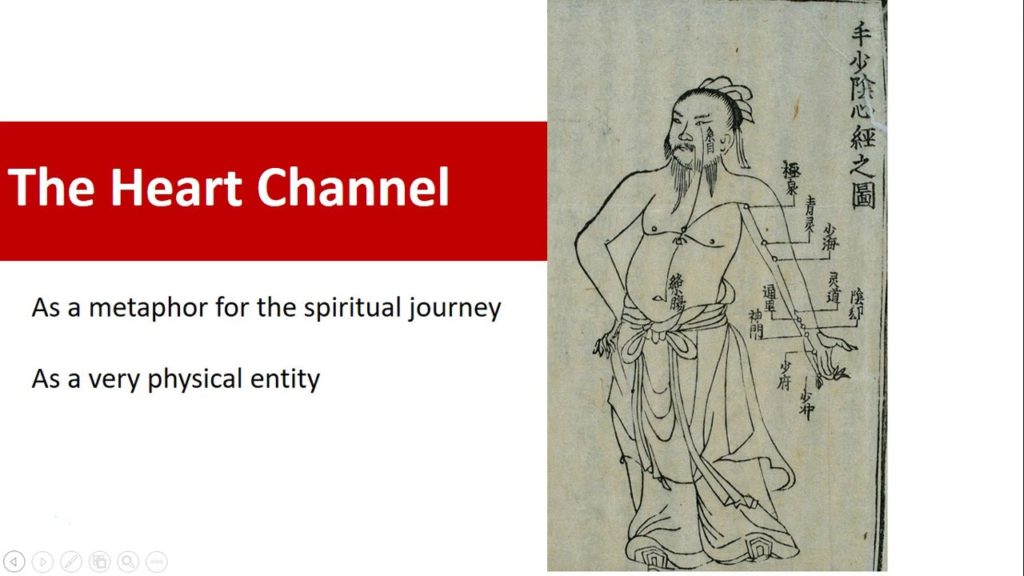

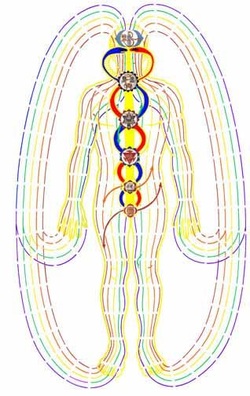
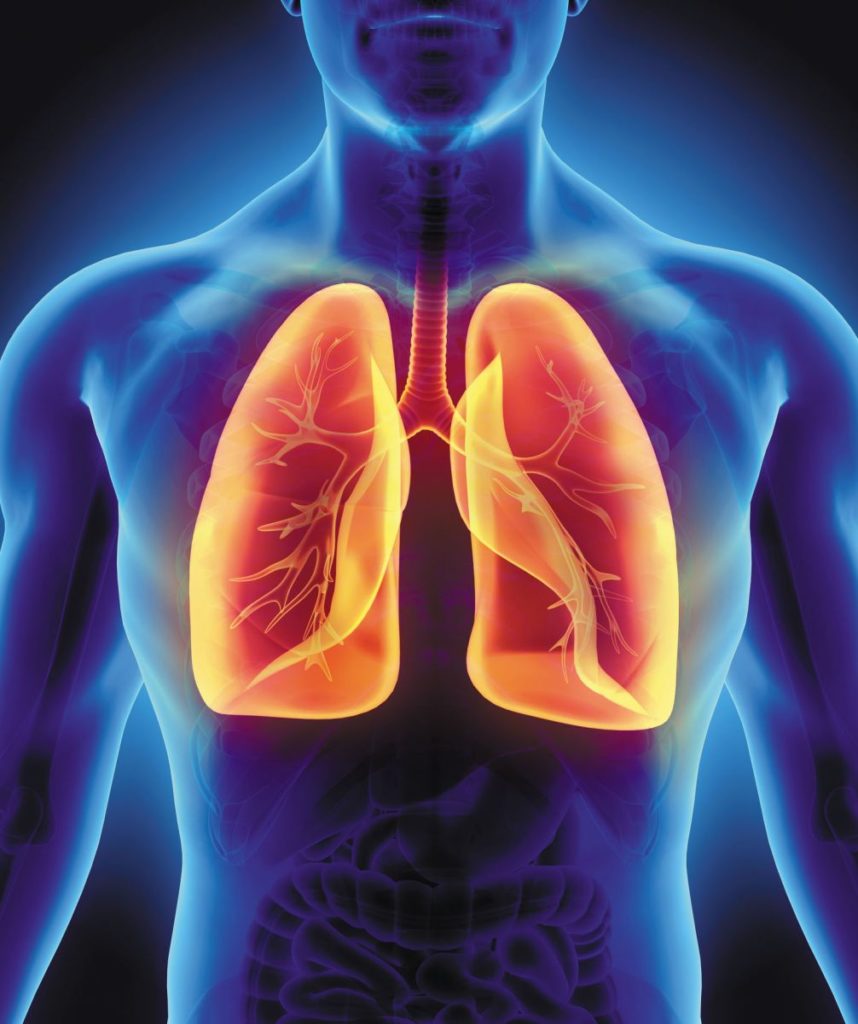
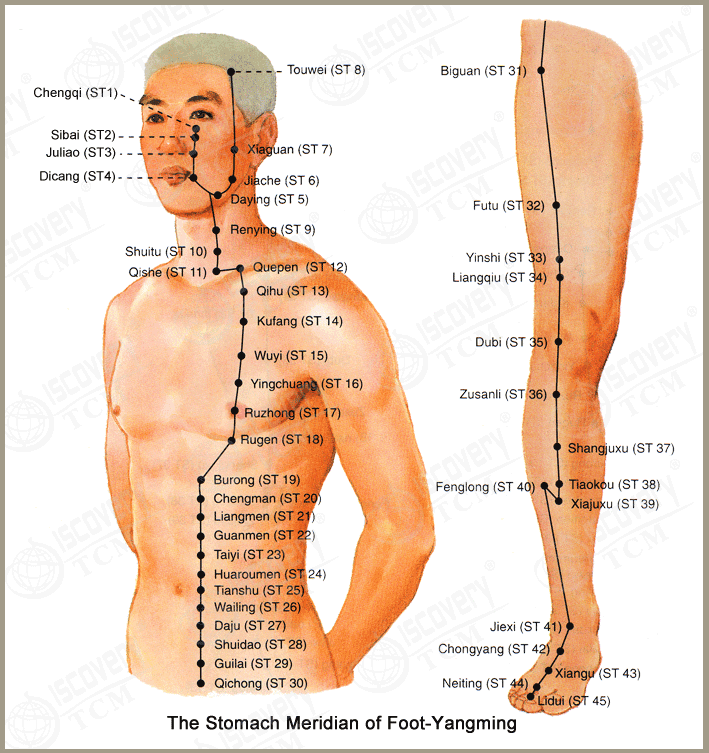
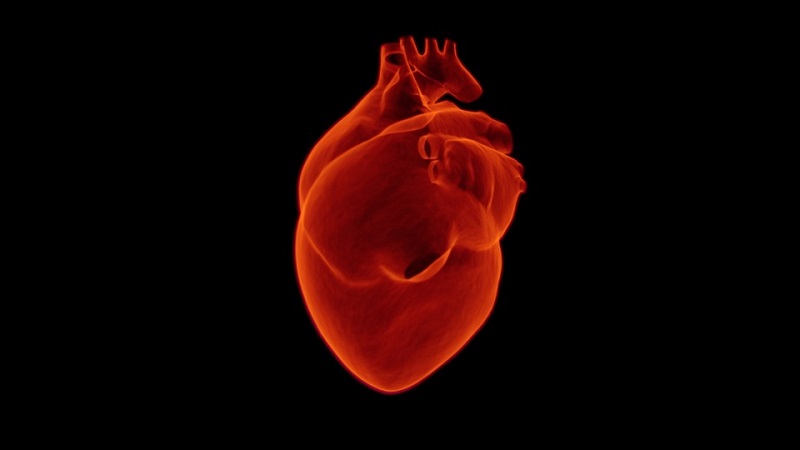
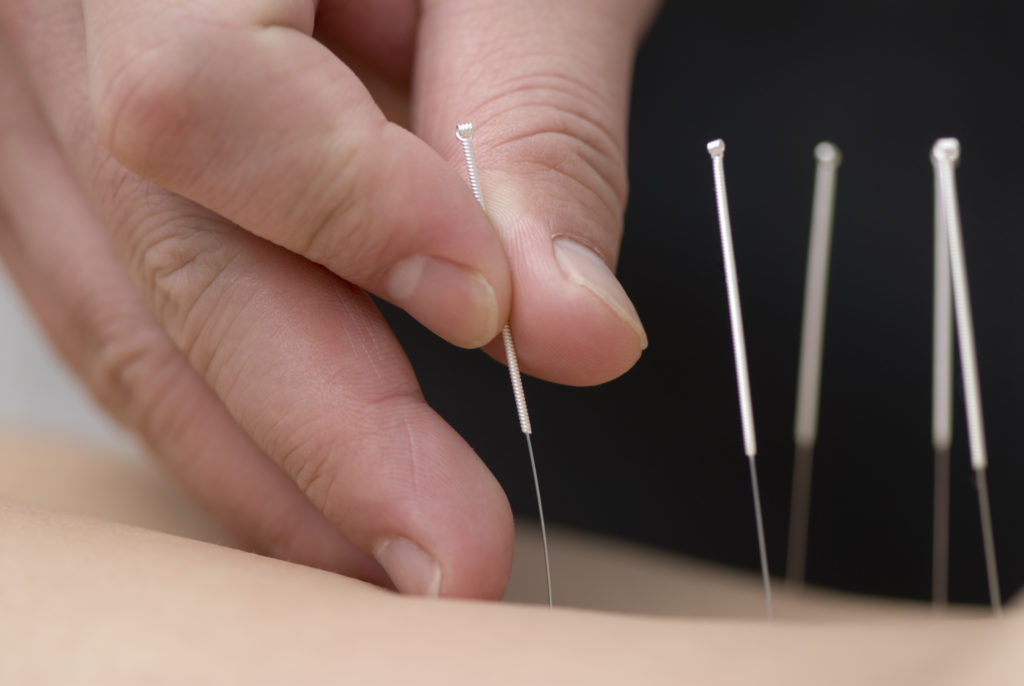



No Comments